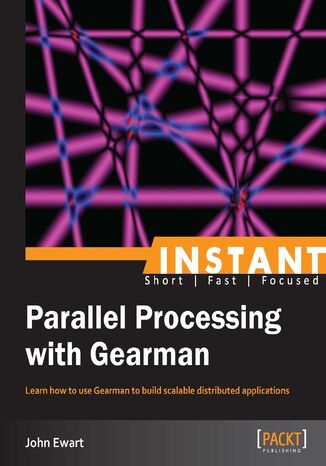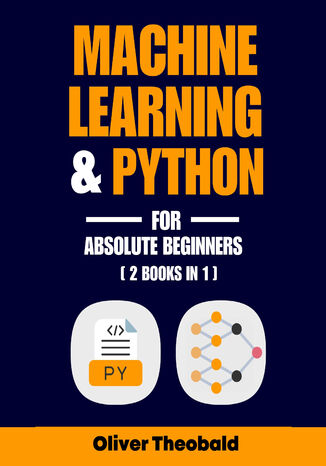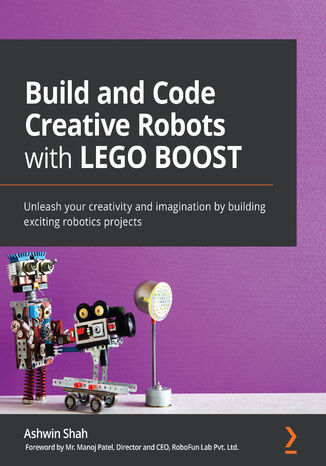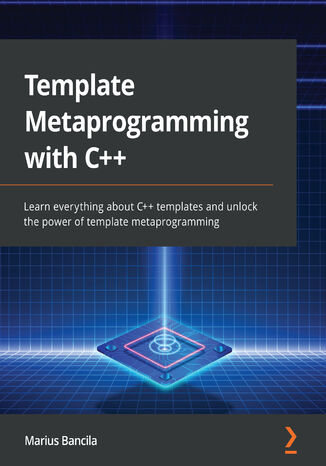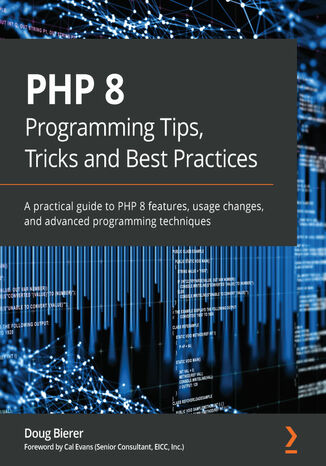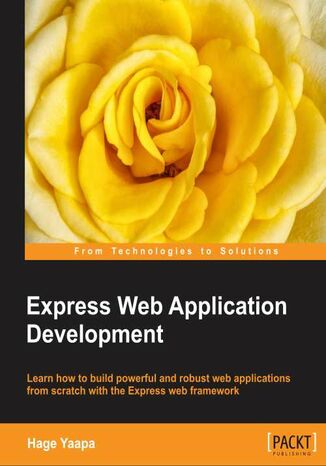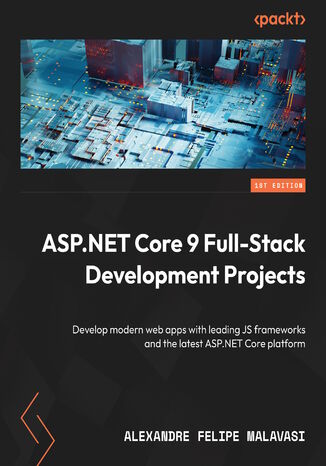Kategorie
Ebooki
-
Biznes i ekonomia
- Bitcoin
- Bizneswoman
- Coaching
- Controlling
- E-biznes
- Ekonomia
- Finanse
- Giełda i inwestycje
- Kompetencje osobiste
- Komputer w biurze
- Komunikacja i negocjacje
- Mała firma
- Marketing
- Motywacja
- Multimedialne szkolenia
- Nieruchomości
- Perswazja i NLP
- Podatki
- Polityka społeczna
- Poradniki
- Prezentacje
- Przywództwo
- Public Relation
- Raporty, analizy
- Sekret
- Social Media
- Sprzedaż
- Start-up
- Twoja kariera
- Zarządzanie
- Zarządzanie projektami
- Zasoby ludzkie (HR)
-
Dla dzieci
-
Dla młodzieży
-
Edukacja
-
Encyklopedie, słowniki
-
E-prasa
- Architektura i wnętrza
- BHP
- Biznes i Ekonomia
- Dom i ogród
- E-Biznes
- Ekonomia i finanse
- Ezoteryka
- Finanse
- Finanse osobiste
- Firma
- Fotografia
- Informatyka
- Kadry i płace
- Kobieca
- Komputery, Excel
- Księgowość
- Kultura i literatura
- Naukowe i akademickie
- Ochrona środowiska
- Opiniotwórcze
- Oświata
- Podatki
- Podróże
- Psychologia
- Religia
- Rolnictwo
- Rynek książki i prasy
- Transport i Spedycja
- Zdrowie i uroda
-
Historia
-
Informatyka
- Aplikacje biurowe
- Bazy danych
- Bioinformatyka
- Biznes IT
- CAD/CAM
- Digital Lifestyle
- DTP
- Elektronika
- Fotografia cyfrowa
- Grafika komputerowa
- Gry
- Hacking
- Hardware
- IT w ekonomii
- Pakiety naukowe
- Podręczniki szkolne
- Podstawy komputera
- Programowanie
- Programowanie mobilne
- Serwery internetowe
- Sieci komputerowe
- Start-up
- Systemy operacyjne
- Sztuczna inteligencja
- Technologia dla dzieci
- Webmasterstwo
-
Inne
-
Języki obce
-
Kultura i sztuka
-
Lektury szkolne
-
Literatura
- Antologie
- Ballada
- Biografie i autobiografie
- Dla dorosłych
- Dramat
- Dzienniki, pamiętniki, listy
- Epos, epopeja
- Esej
- Fantastyka i science-fiction
- Felietony
- Fikcja
- Humor, satyra
- Inne
- Klasyczna
- Kryminał
- Literatura faktu
- Literatura piękna
- Mity i legendy
- Nobliści
- Nowele
- Obyczajowa
- Okultyzm i magia
- Opowiadania
- Pamiętniki
- Podróże
- Poemat
- Poezja
- Polityka
- Popularnonaukowa
- Powieść
- Powieść historyczna
- Proza
- Przygodowa
- Publicystyka
- Reportaż
- Romans i literatura obyczajowa
- Sensacja
- Thriller, Horror
- Wywiady i wspomnienia
-
Nauki przyrodnicze
-
Nauki społeczne
-
Podręczniki szkolne
-
Popularnonaukowe i akademickie
- Archeologia
- Bibliotekoznawstwo
- Filmoznawstwo
- Filologia
- Filologia polska
- Filozofia
- Finanse i bankowość
- Geografia
- Gospodarka
- Handel. Gospodarka światowa
- Historia i archeologia
- Historia sztuki i architektury
- Kulturoznawstwo
- Lingwistyka
- Literaturoznawstwo
- Logistyka
- Matematyka
- Medycyna
- Nauki humanistyczne
- Pedagogika
- Pomoce naukowe
- Popularnonaukowa
- Pozostałe
- Psychologia
- Socjologia
- Teatrologia
- Teologia
- Teorie i nauki ekonomiczne
- Transport i spedycja
- Wychowanie fizyczne
- Zarządzanie i marketing
-
Poradniki
-
Poradniki do gier
-
Poradniki zawodowe i specjalistyczne
-
Prawo
- BHP
- Historia
- Kodeks drogowy. Prawo jazdy
- Nauki prawne
- Ochrona zdrowia
- Ogólne, kompendium wiedzy
- Podręczniki akademickie
- Pozostałe
- Prawo budowlane i lokalowe
- Prawo cywilne
- Prawo finansowe
- Prawo gospodarcze
- Prawo gospodarcze i handlowe
- Prawo karne
- Prawo karne. Przestępstwa karne. Kryminologia
- Prawo międzynarodowe
- Prawo międzynarodowe i zagraniczne
- Prawo ochrony zdrowia
- Prawo oświatowe
- Prawo podatkowe
- Prawo pracy i ubezpieczeń społecznych
- Prawo publiczne, konstytucyjne i administracyjne
- Prawo rodzinne i opiekuńcze
- Prawo rolne
- Prawo socjalne, prawo pracy
- Prawo Unii Europejskiej
- Przemysł
- Rolne i ochrona środowiska
- Słowniki i encyklopedie
- Zamówienia publiczne
- Zarządzanie
-
Przewodniki i podróże
- Afryka
- Albumy
- Ameryka Południowa
- Ameryka Środkowa i Północna
- Australia, Nowa Zelandia, Oceania
- Austria
- Azja
- Bałkany
- Bliski Wschód
- Bułgaria
- Chiny
- Chorwacja
- Czechy
- Dania
- Egipt
- Estonia
- Europa
- Francja
- Góry
- Grecja
- Hiszpania
- Holandia
- Islandia
- Litwa
- Łotwa
- Mapy, Plany miast, Atlasy
- Miniprzewodniki
- Niemcy
- Norwegia
- Podróże aktywne
- Polska
- Portugalia
- Pozostałe
- Przewodniki po hotelach i restauracjach
- Rosja
- Rumunia
- Słowacja
- Słowenia
- Szwajcaria
- Szwecja
- Świat
- Turcja
- Ukraina
- Węgry
- Wielka Brytania
- Włochy
-
Psychologia
- Filozofie życiowe
- Kompetencje psychospołeczne
- Komunikacja międzyludzka
- Mindfulness
- Ogólne
- Perswazja i NLP
- Psychologia akademicka
- Psychologia duszy i umysłu
- Psychologia pracy
- Relacje i związki
- Rodzicielstwo i psychologia dziecka
- Rozwiązywanie problemów
- Rozwój intelektualny
- Sekret
- Seksualność
- Uwodzenie
- Wygląd i wizerunek
- Życiowe filozofie
-
Religia
-
Sport, fitness, diety
-
Technika i mechanika
Audiobooki
-
Biznes i ekonomia
- Bitcoin
- Bizneswoman
- Coaching
- Controlling
- E-biznes
- Ekonomia
- Finanse
- Giełda i inwestycje
- Kompetencje osobiste
- Komunikacja i negocjacje
- Mała firma
- Marketing
- Motywacja
- Nieruchomości
- Perswazja i NLP
- Podatki
- Polityka społeczna
- Poradniki
- Prezentacje
- Przywództwo
- Public Relation
- Sekret
- Social Media
- Sprzedaż
- Start-up
- Twoja kariera
- Zarządzanie
- Zarządzanie projektami
- Zasoby ludzkie (HR)
-
Dla dzieci
-
Dla młodzieży
-
Edukacja
-
Encyklopedie, słowniki
-
E-prasa
-
Historia
-
Informatyka
-
Inne
-
Języki obce
-
Kultura i sztuka
-
Lektury szkolne
-
Literatura
- Antologie
- Ballada
- Biografie i autobiografie
- Dla dorosłych
- Dramat
- Dzienniki, pamiętniki, listy
- Epos, epopeja
- Esej
- Fantastyka i science-fiction
- Felietony
- Fikcja
- Humor, satyra
- Inne
- Klasyczna
- Kryminał
- Literatura faktu
- Literatura piękna
- Mity i legendy
- Nobliści
- Nowele
- Obyczajowa
- Okultyzm i magia
- Opowiadania
- Pamiętniki
- Podróże
- Poezja
- Polityka
- Popularnonaukowa
- Powieść
- Powieść historyczna
- Proza
- Przygodowa
- Publicystyka
- Reportaż
- Romans i literatura obyczajowa
- Sensacja
- Thriller, Horror
- Wywiady i wspomnienia
-
Nauki przyrodnicze
-
Nauki społeczne
-
Popularnonaukowe i akademickie
-
Poradniki
-
Poradniki zawodowe i specjalistyczne
-
Prawo
-
Przewodniki i podróże
-
Psychologia
- Filozofie życiowe
- Komunikacja międzyludzka
- Mindfulness
- Ogólne
- Perswazja i NLP
- Psychologia akademicka
- Psychologia duszy i umysłu
- Psychologia pracy
- Relacje i związki
- Rodzicielstwo i psychologia dziecka
- Rozwiązywanie problemów
- Rozwój intelektualny
- Sekret
- Seksualność
- Uwodzenie
- Wygląd i wizerunek
- Życiowe filozofie
-
Religia
-
Sport, fitness, diety
-
Technika i mechanika
Kursy video
-
Bazy danych
-
Big Data
-
Biznes, ekonomia i marketing
-
Cyberbezpieczeństwo
-
Data Science
-
DevOps
-
Dla dzieci
-
Elektronika
-
Grafika/Wideo/CAX
-
Gry
-
Microsoft Office
-
Narzędzia programistyczne
-
Programowanie
-
Rozwój osobisty
-
Sieci komputerowe
-
Systemy operacyjne
-
Testowanie oprogramowania
-
Urządzenia mobilne
-
UX/UI
-
Web development
-
Zarządzanie
Podcasty
Many of today's applications need to be able to process large volumes of data, and vertical scaling has its limits both in terms of prohibitive cost and hardware limits. Gearman is an open source job manager that is well-suited to building horizontally scalable systems, from map-reduce algorithms to simple data processors capable of handling massive amounts of information.Instant Gearman is a practical, hands-on guide to getting started with building an open source job management server system that is built to grow. Learn the basics of building a distributed application that spans multiple components and learn how Gearman fits into building an application that scales from one to hundreds of components that interact to process data. With Gearman, you can build software that scales horizontally as your need for computation increases.Instant Gearman has in-depth examples and a step-by-step approach to building distributed systems, helping you to build systems that are scalable and modular in their approach to processing data.Once you are comfortable with building simple workers and clients, learn how to build a cluster of managers and see how to reduce single-point-of-failure in your architecture. Next, build a simple map-reduce application using Gearman and scale it up from a single instance to multiple parallel processing components.
Starting with Python syntax and data types, this guide builds toward implementing key machine learning models. Learn about loops, functions, OOP, and data cleaning, then transition into algorithms like regression, KNN, and neural networks. A final section walks you through model optimization and building projects in Python.The book is split into two major sections—foundational Python programming and introductory machine learning. Readers are guided through essential concepts such as data types, variables, control flow, object-oriented programming, and using libraries like pandas for data manipulation.In the machine learning section, topics like model selection, supervised vs unsupervised learning, bias-variance, and common algorithms are demystified with practical coding examples. It’s a structured, clear roadmap to mastering both programming and applied ML from zero knowledge.
LEGO BOOST is a feature-rich creative toolbox that helps kids to develop science, technology, engineering, and mathematics (STEM) skills in a fun way. The LEGO BOOST kit consists of motors, sensors, and more than 840 LEGO pieces to bring various multifunctional robots to life. This book will take you on an interesting and enjoyable journey where you will have fun building robots while developing your problem-solving and logical thinking skills.This book is an end-to-end guide that will take you from a beginner to expert level of robot building with LEGO BOOST and Scratch. Starting with the unboxing and a brief introduction to LEGO BOOST, you'll quickly get your first robotic model up and running. You'll understand how to use the electronic and non-electronic components and have fun building a range of intriguing robotics projects with increasing complexity and advanced functionality. Throughout the book, you'll work on a variety of amazing projects, such as building your own R2D2, a fictional character from Star Wars, that will pique your curiosity to learn robotics and help you explore the full potential of the LEGO BOOST kit. Once you've had fun working with the projects, you'll be introduced to an interesting challenge for you to solve by yourself!By the end of this book, you'll have gained the skills to build creative robotics projects with the LEGO BOOST creative toolbox, and have built on your logical thinking and problem-solving skills.
Learn how the metaprogramming technique enables you to create data structures and functions that allow computation to happen at compile time. With this book, you'll realize how templates help you avoid writing duplicate code and are key to creating generic libraries, such as the standard library or Boost, that can be used in a multitude of programs.The introductory chapters of this book will give you insights into the fundamentals of templates and metaprogramming. You'll then move on to practice writing complex templates and exploring advanced concepts such as template recursion, template argument deduction, forwarding references, type traits, and conditional compilation. Along the way, you'll learn how to write variadic templates and how to provide requirements to the template arguments with C++20 constraints and concepts. Finally, you'll apply your knowledge of C++ metaprogramming templates to implement various metaprogramming patterns and techniques.By the end of this book, you'll have learned how to write effective templates and implement metaprogramming in your everyday programming journey.
Thanks to its ease of use, PHP is a highly popular programming language used on over 78% of all web servers connected to the Internet. PHP 8 Programming Tips, Tricks, and Best Practices will help you to get up-to-speed with PHP 8 quickly. The book is intended for any PHP developer who wants to become familiar with the cool new features available in PHP 8, and covers areas where developers might experience backward compatibility issues with their existing code after a PHP 8 update. The book thoroughly explores best practices, and highlights ways in which PHP 8 enforces these practices in a much more rigorous fashion than its earlier versions.You'll start by exploring new PHP 8 features in the area of object-oriented programming (OOP), followed by enhancements at the procedural level. You'll then learn about potential backward compatible breaks and discover best practices for improving performance. The last chapter of the book gives you insights into PHP async, a revolutionary new way of programming, by providing detailed coverage and examples of asynchronous programming using the Swoole extension and Fibers.By the end of this PHP book, you'll not only have mastered the new features, but you'll also know exactly what to watch out for when migrating older PHP applications to PHP 8.
Unreal Engine 4 is a complete suite of game development tools that gives you power to develop your game and seamlessly deploy it to iOS and Android devices. It can be used for the development of simple 2D games or even stunning high-end visuals. Unreal Engine features a high degree of portability and is a tool used by many game developers today.This book will introduce you to the most popular game development tool called Unreal Engine 4 with hands-on instructions for building stunning video games. You will begin by creating a new project or prototype by learning the essentials of Unreal Engine by getting familiar with the UI and Content Browser. Next, we'll import a sample asset from Autodesk 3ds max and learn more about Material Editor. After that we will learn more about Post Process. From there we will continue to learn more about Blueprints, Lights, UMG, C++ and more.
Express is a minimal and flexible node.js web application framework, providing a robust set of features for building single and multi-page, and hybrid web applications. It provides a thin layer of features fundamental to any web application, without obscuring features that developers know and love in node.js.Express Web Application Development is a comprehensive guide for those looking to learn how to use the Express web framework for web application development.Starting with the initial setup of the Express web framework, Express Web Application Development helps you to understand the fundamentals of the framework. By the end of Express Web Application Development, you will have acquired enough knowledge and skills to create production-ready Express apps. All of this is made possible by the incremental introduction of more advanced topics, starting from the very essentials.On the way to mastering Express for application development, we teach you the more advanced topics such as routes, views, middleware, forms, sessions, cookies and various other aspects of configuring an Express application. Jade; the recommended HTML template engine, and Stylus; the CSS pre-processor for Express, are covered in detail.Last, but definitely not least, Express Web Application Development also covers practices and setups that are required to make Express apps production-ready.
In the ASP.NET Core ecosystem, choosing the right JavaScript framework is key to addressing diverse project requirements. Witten by a four-time Microsoft MVP with 16 years of software development experience, this book is your comprehensive guide to mastering full-stack development, combining ASP.NET Core’s robust backend capabilities with the dynamic frontend power of Vue.js, Angular, and React.This book uses ASP.NET Core to teach you best practices for integrating modern JavaScript frameworks, and creating responsive, high-performance applications that deliver seamless client–server interactions and scalable RESTful APIs. In addition to building expertise in ASP.NET Core’s core strengths, such as API security, architecture principles, and performance optimization, the chapters will help you develop the essential frontend skills needed for full-stack development. Sections on Blazor take a C#-based approach to creating interactive UIs, showcasing ASP.NET Core’s flexibility in handling both server and client-side needs.By the end of this book, you will have a complete toolkit for designing, deploying, and maintaining complex full-stack applications, along with practical knowledge of both backend and frontend development.

